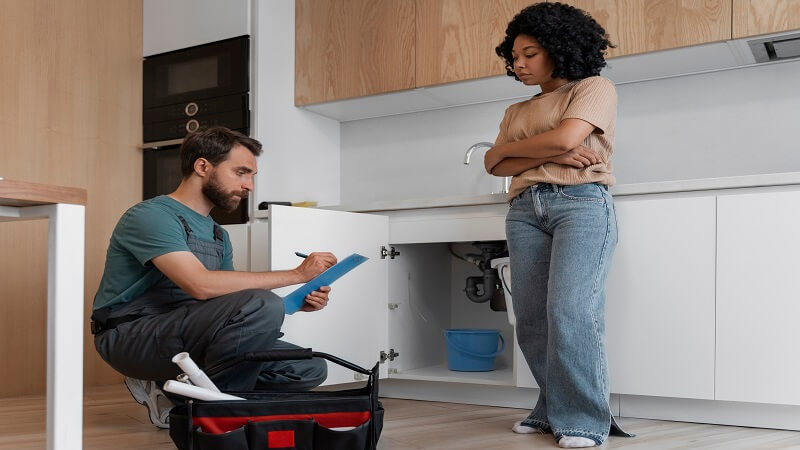Plumbing crises come at a time when they are least expected. One minute, all is well; the next minute, you are all the way in up to your ankles in water. You never know when plumbing trouble will come, but you can get ready. The following are the five most common plumbing emergencies to be aware of and how to prevent them.
Burst pipes
A burst pipe is one of the most devastating plumbing problems you will ever experience. Water may pour out fast, filling up rooms. It can damage floors, walls, and furniture. Freezing temperatures are particularly dangerous to pipes. However, they may also fail due to corrosion or high water pressure.
What to do: You should turn off the main water supply of your house the moment you see that pipe burst. Next, shut off the power in the affected site if there is water near outlets or appliances. Contact a plumber as soon as possible. This is a job you do not want to do independently.
Toilet congestion or overflow
Nothing can lead to panic like a toilet overflowing at the moment the guests show up. Not only is it inconvenient, but it can also lead to unsanitary conditions in your home.
What to do: First, do not continue to flush. That will only make it worse. Then, try to clear the blockage with a plunger. If this is not effective, turn off the water supply. It is usually a valve just behind the toilet.
The next step is to call a plumber. 24/7 emergency plumbing is a savior if this happened outside of business hours.
Severe drain clogs
A slow drain is one thing. But an obstructed drain is an entirely different story; it will bring your home to a halt. Kitchens, bathrooms, and laundry rooms are all prone to such extreme clogs that you cannot plunge out.
Action: Avoid flushing harsh chemicals down the drain. They may cause more harm than good. Rather, use a plunger or a drain snake (unless you do not have one).
If the clog does not give way, then it is time to call in a professional. In special situations, an emergency plumber can clear the line before it creates some form of backup in other parts of your home.
Water heater failure
You open the shower water only to find cold water. A typical indicator of a malfunctioning water heater. More seriously, a faulty water heater may leak or even burst. That can leave you with water damage.
What to do: Check for:
- Leaks
- Strange sounds
- Rusty water.
If you see any, switch off the power of the unit and the cold-water inlet valve. Next, invite a plumber to find out what is wrong. Routine maintenance is one way of avoiding these surprises. However, sometimes all that is required is a replacement.
The takeaway
Plumbing emergencies are stressful, but knowing who to call and what to do is the difference. It is always good to have the contact of a trusted emergency plumbing service. As a result, you can prevent a bad situation from becoming a household disaster.

